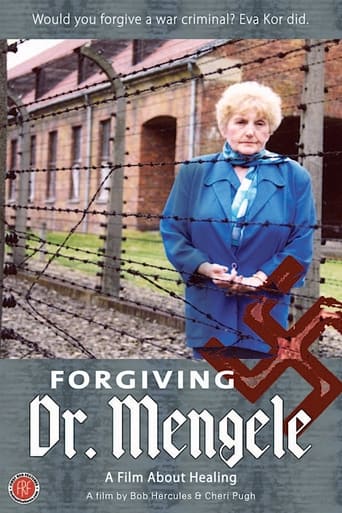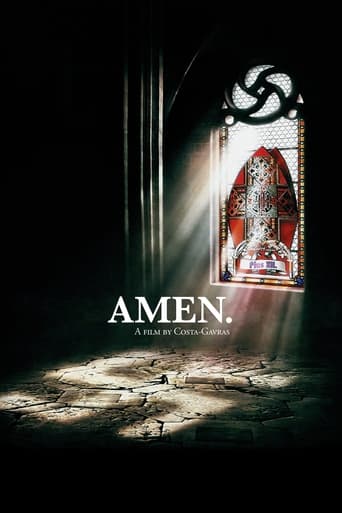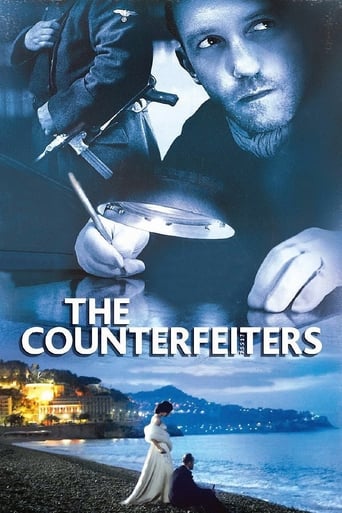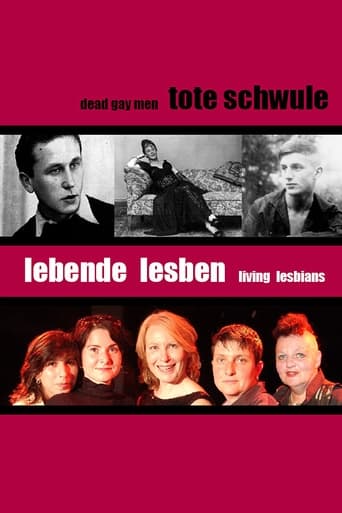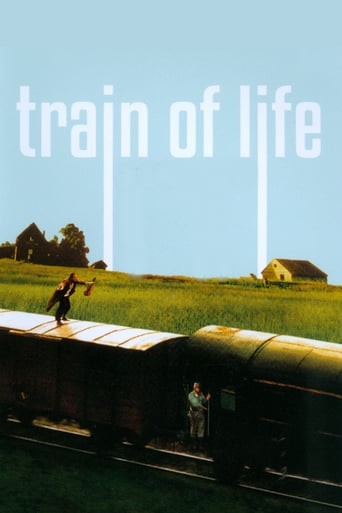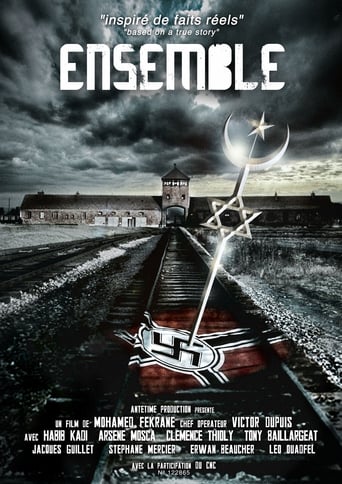Forgiving Dr. Mengele (2006)
Eva Mozes Kor, who survived Josef Mengele's cruel twin experiments in the Auschwitz concentration camp, shocks other Holocaust survivors when she decides to forgive the perpetrators as a way of self-healing.
Watch Trailer
Cast


Similar titles
Reviews
I think this is a new genre that they're all sort of working their way through it and haven't got all the kinks worked out yet but it's a genre that works for me.
Purely Joyful Movie!
Each character in this movie — down to the smallest one — is an individual rather than a type, prone to spontaneous changes of mood and sometimes amusing outbursts of pettiness or ill humor.
Very good movie overall, highly recommended. Most of the negative reviews don't have any merit and are all pollitically based. Give this movie a chance at least, and it might give you a different perspective.
The first half of this documentary is very strange, mostly focusing on Eva's life flashing back and forth with scenes of Auschwitz, like a demented version of Kubrick's famous 2001 switcheroo. Although we do feel sympathetic for Eva by the 20 minute mark, having learned about her troubled adulthood in a world where the Holocaust was silently passed over, the directing is almost too kitschy and weird to be a Holocaust documentary. It was not pleasant viewing.The film picks up around the 25 minute mark when Eva's quest to raise awareness of the Holocaust takes an unexpected turn. She does not only want guilt and shame, she wants the Germans to know her forgiveness. We hear some fascinating debates, but only for a few minutes. Perhaps the directors didn't want to bore us with real conflict and debate.Midway through, and again all too briefly, we get to see a real treat: a one-room Holocaust "museum" built not with government dollars and NGO support, but by and for a single woman who wanted people in her small town to know her story. With this you start to understand the real meaning and importance of Holocaust education for ordinary people. But this segment ends abruptly.Then, two unrelated segments. First, Eva's own capacity to listen and forgive is given a test when she meets with Palestinians. Here, she does not come off as very compassionate at all. This was hard to watch, and again, not pleasant. Finally, inexplicably, Eva's museum is burned down in an act of arson. This is also dealt with all too briefly. We don't see the museum being rebuilt or a new plan being drawn up -- but a new museum does appear for a split-second shot.All in all, an uneven and unsatisfying film, that introduces us to an independent thinker, but doesn't seem to take her very seriously.It is never explained why Eva wears blue every day.
When it comes to the Holocaust, there is probably no one (save for Adolph Hitler) who can send chills down a person's spine like Dr. Josef Mengele. Many people are given nicknames, but calling this unspeakably evil man The Angel of Death is no exaggeration. Mengele was behind numerous cruel, torturous and deadly experiments on prisoners at Auschwitz, and that's where the the woman at the film's focus, Eva Moses Kor, comes into the picture. For the last ten months, Eva and her twin sister, Miriam, were horrifically tortured by Dr. Mengele in his experiments on twins. Yet, fifty years later, she decides to forgive. Not only Dr. Mengele, but all of the Nazis who participated in the Holocaust. How is a person, who's been through what can only be described as Hell, have the strength to do this? Why did she do it? For Eva Kor, it's a way of releasing the pain. Forgiving the Nazis is a way of saying that their evil is not able to keep her from living the life that she wants to live. She won't allow herself to be burdened by the pain of her memories anymore.Needless to say, Eva received a lot of flak from her announcement. Some, like other members of "Mengele's Twins," are outraged. Others simply don't believe her. It is, however, important to realize that she is not excusing what happened, nor will she allow herself to forget (how can she?). Nor is she speaking for all of the Jewish people or those who also suffered during the Holocaust. This is a way for her to heal herself.The great thing about this film is that it is even handed. It gives voice to those who oppose her, and allows us to feel for them. I understood their shock and outrage; believe me, for the first half of the movie, I was in the same boat. It also allows us to question Eva. Is she really truly forgiving the Nazis? Personally, I felt that forgiveness may be an inappropriate word. What I felt that she is doing was acknowledging that it happened, and then leaving the pain of it in the past. She is not "getting over it" or "moving on." She builds a museum in her home town of Terra Haute, Indiana about the Holocaust and her experiences. But she is not allowing herself to be burdened by the pain anymore. It's a tough concept to understand, especially in this context, and I'm sure it would be near impossible to actually do. But Eva Kor does it.There is no doubt that this is a powerful, and at times disturbing, film; any film dealing with the Holocaust would be. There are many moments in the film that are very powerful. For example, her relationship with her sister and how that changed with the Holocaust. But like Eva, the film is not about the Holocaust and her experiences in them; the filmmakers are focusing on her forgiveness, and her struggles to explain her thinking and to persuade others (not just the Holocaust victims) to do the same.However, this is where the film begins to lag. About three quarters through the film, Eva goes to Israel to try to get the Israelis and Palestineans to stop fighting and forgive. It's a provocative thought and there are some effective moments in it, but the segment lasts too long, and it feels a little repetitive.For me, the most moving segment of the film is when she meets with Dr. Hans Munch, an SS doctor who was present in Auschwitz. Dr. Munch was indeed a doctor there, but he has suffered nightmares about Auschwitz ever since. Dr. Munch is happy to meet with her, and he even goes to Auschwitz with her to celebrate the fifty year celebration of the liberation of the camp, and he signs a document that acknowledges what happened there.This is a very powerful documentary, and the theme of forgiveness is something that we can use ourselves. And that's exactly what Eva wants.
The documentary revolves around Eva Mozes Kor, a holocaust survivor, part of Mengele's experiments on twins, consisting primarily her version of what happened at Auschwitz, and a comparison of the emotions of the other survivors of the twin experiments. The movie obviously had great reviews. It's one of those topics that no one dares to voice a contrary opinion about.I too, for a large part of the movie, got sucked into the emotion that the movie-maker so obviously wanted the viewer to concentrate on. One of the user reviews on IMDb by Eric Monder (obviously having nothing critical to say about the issue on a public forum) could only find the sweetest nectar. "In one of the many dramatic sequences, as a group of Jews argue with Kor at a Jewish center, the meaning of the word "forgive" is even debated, but the isolated and outnumbered Kor holds her own" But by this time, the sappy hold that the movie had on my dormant emotional repertoire had let loose enough that I could see clearly once more. After the "strong-willed" Eva Kor forgives her "Nazi captors" the movie begins to delve into what forgiving is all about, at least from the viewpoint of Kor. The movie goes about following her, past her public statement forgiving the Nazis and into new territory. To me, this was the meat of the movie, surrounded by inedible fat of her "act of forgiveness". Obviously, it was a very sick cow.On a mission to test her theory of forgiveness, in order to heal wounds of the past, she makes her way to the "promised land" to meet with some Arabs, to discuss with them the issues that they face and to see if dialogue cannot lead to a better understanding of the situation and heavily interspersed with debates and discussions with Jews in the US on her act of forgiving the Nazis, including one at a Jewish center in Chicago. From then on, anyone not so teary eyed that they can't see the screen will find it hard-pressed to miss the obvious contradiction in her statements.Firstly, you immediately notice her body language, defensive and unwilling to listen in a room full of Arab scholars and teachers. Her comments about how she feared that they might kidnap her shows how much of a waste of time, effort and money the entire act was. A rather annoyed Dr Sami Advan (Professor of education at Bethlehem University) gets it just right when he tells Kor off for a statement she makes about how she would rather be asleep in her apartment.Finally, the debate at the Jewish center in Chicago, where she is "grilled" on the meaning of forgiveness and her right to do so, in the wake of those that continue suffering through the trauma of the acts.I will cut to the chase. By the end of the movie, I was hoping I hadn't chosen to watch the movie. The movie was badly made, failing to delve deeper into anything about Auschwitz apart from the purely trivial, just sufficient to make sure the holocaust is refreshed in the viewers memory and to incite a barrage of tears. It showed that Kor, the subject of the documentary was unable to engage in fair discussion. Her discussion abilities were limited to parroting her stance on forgiveness (at best) to a complete unwillingness to listen or participate.Lastly, is everyone so retarded today that they can't notice the difference between making peace and forgiving? Quoting another IMDb user, "I don't see her forgiveness as being weak- quite the contrary, she just wanted to relieve its hold from her soul, she wanted the suffering to be over, so she let it go." That would be the perfect layman's definition of MAKING PEACE.I guess, in a world of propaganda, blind faith and political correctness, there is no room to question those that have "gone through more than the human mind can fathom".P.S. The dictionary certainly should go into all those Books-to-buy lists everyone keeps making.
Eva becomes a personal hero. What could have been another grotesque documentary about the horrific offenses of the Holocaust, becomes a graceful and incredibly smart analysis of humanity. Eva, this tiny 60 year old lady, with her head hanging off one shoulder, comes out and says she forgives the Nazis, and Dr. Mengele.Big deal, right? It becomes quite a big deal. Other holocaust survivors, other Mengele twin victims come out to publicly criticize Eva. The body of the film investigates forgiveness- whether Eva genuinely forgave Dr. Mengele or not (I don't think it would be humanly possible to do when he was responsible for killing her entire family) doesn't matter as much as what it means to everyone else. The word forgive comes with this acidic and powerful bang, it opened the flood gates of criticism from the Jewish community."We are not Gods, we can not forgive." "To forgive would be to betray our parents." "It is not my place to forgive." I had never heard of anyone using these excuses before, much less believing them. I realized that forgiveness is emphasized in the New Testament and in my upbringing. Perhaps in the Jewish community it means something different, perhaps they don't see it as a virtue at all . . . and that seems totally bizarre to me.Please do not assume that I mean to say Catholics and Christians are more virtuous people- they may speak from the moral foundation I know, but they are by NO MEANS, more virtuous people.This tiny, Polish woman, then, builds a museum in the Midwest where she raised her family, travels the world faced with opposition from the Jewish community and survivors- the only identity she can claim to be her own; without a family, without her home country- and she fights.I don't see her forgiveness as being weak- quite the contrary, she just wanted to relieve its hold from her soul, she wanted the suffering to be over, so she let it go.

